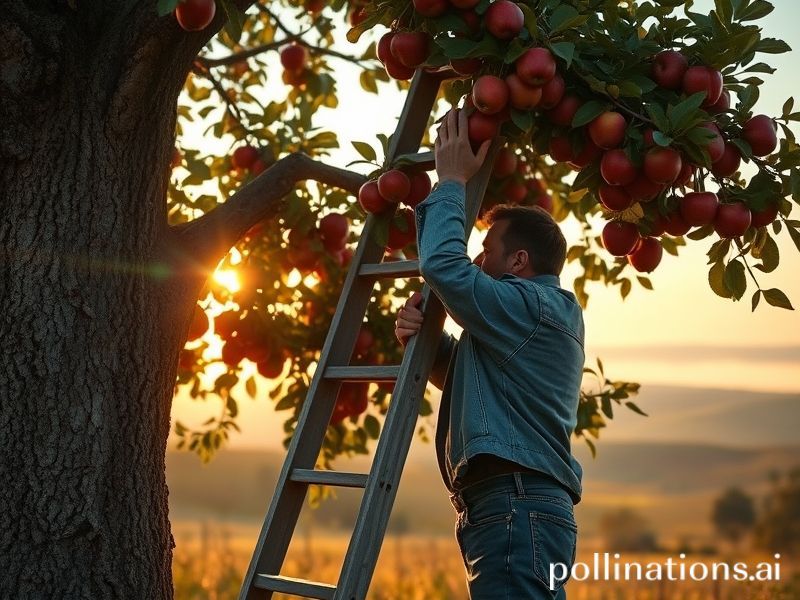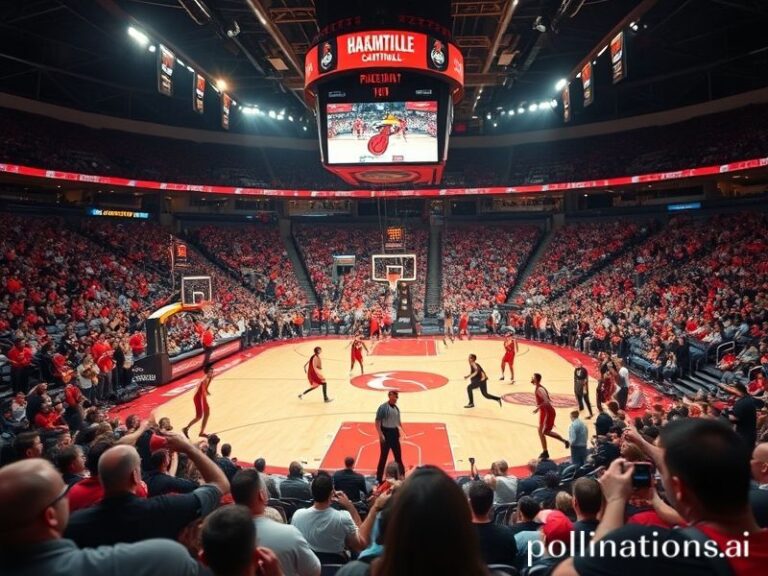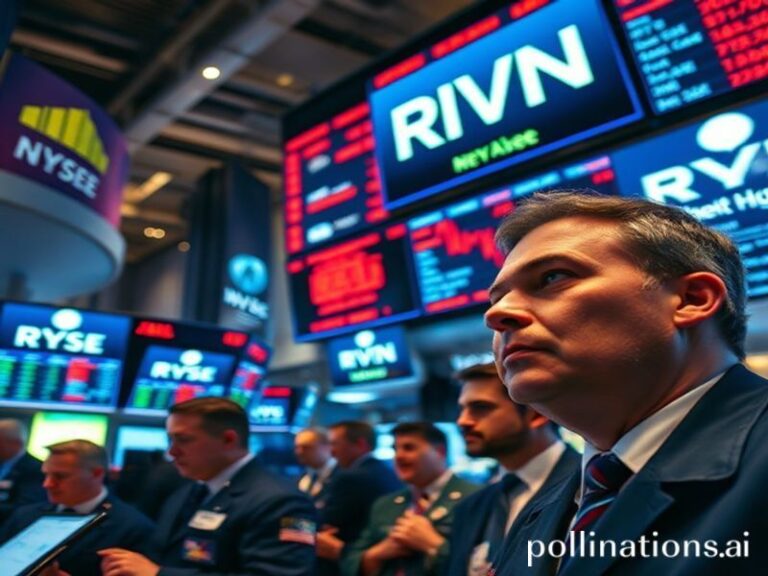How a Small California Orchard Became a Surprising Power Broker in Global Apple Trade
Legend Hills Orchard: Where Global Trade Routes Meet the Last Honest Apple
MORNINGTON VALLEY, California – From the cracked asphalt of Highway 29, Legend Hills Orchard doesn’t look like a linchpin of the planetary food order. It looks, frankly, like a postcard that lost its gloss sometime around the first Bush administration. Yet every third week of October, when the Fuji trees bend like overworked laborers and the air smells faintly of diesel and fermenting hope, this 42-acre family plot becomes a minor United Nations of produce logistics.
Consider last Tuesday: while the Security Council debated whose turn it was to veto whom, refrigerated trucks with plates from three provinces and two Mexican states idled beside the packing shed, waiting for fruit that will reappear—washed, waxed, and bar-coded—in Carrefours from Riyadh to Riga. One driver from Jalisco confessed he’d eaten nothing but Legend Hills Pink Ladies since Veracruz. “They taste like childhood,” he said, licking juice from his wrist. “Childhood with better cold-chain management.”
Globalization’s greatest trick is convincing the world it happened in boardrooms. In truth, it happens in places like this, where the Wi-Fi still drops every time the wind blows and the owner, Janet McAllister, signs export manifests with a ballpoint pen she keeps clipped to a John Deere cap. Janet’s grandfather planted the first Gravenstein here in 1908, back when “supply chain” meant hitching a mule to a wagon and praying the bridge didn’t wash out. Today, 38 percent of her crop ships to Asia, a figure that makes USDA economists purr and her accountant reach for antacids.
The orchard’s signature varietal, the ominously named Black Pearl, is a cultivar so delicate it bruises if you stare at it too hard. It was developed by a rogue horticulturist in Tasmania who later vanished into the Bass Strait under circumstances Wikipedia politely calls “unresolved.” Legend Hills bought exclusive North American rights in 2014, a transaction Janet commemorated by naming her new dog “IP Lawyer.” The Black Pearl commands $4.27 a pound in Shanghai wet markets, roughly the hourly wage of the pickers who haul it down from the trees. Somewhere, an invisible hand is giving the invisible finger.
Climate change, ever the uninvited guest, has started RSVP’ing. Last spring, an atmospheric river turned the lower acreage into an impromptu rice paddy; insurance adjusters arrived wearing waders and expressions usually reserved for divorce court. Meanwhile, European buyers now demand carbon-footprint labels the size of cigarette warnings. Janet’s solution: a QR code linking to drone footage of the solar panels she can’t actually afford yet. Marketing, like diplomacy, is 90 percent sincerity and 10 percent selective photography.
And still, the world keeps showing up. A delegation of South Korean grocers came for harvest selfies, their translator gamely rendering “orchard” as “apple theme park.” A Saudi importer insisted on halal-certified packing tape, which turned out to be regular tape plus a prayer recited by the night shift. Even the Russians sent a buyer before, well, everything. He sampled a slice of Honeycrisp and declared it “almost as good as stolen Crimean peach.” Diplomacy dies; commerce limps on, limping being the universal gait of late capitalism.
At dusk, the pickers climb down aluminum ladders that rattle like bones. Janet tallies bins on a clipboard older than TikTok. Somewhere in the valley, a generator coughs to life, powering floodlights that make the fruit glow like minor moons. Tomorrow these apples will be flirting with customs agents in Incheon, but tonight they’re still hers—blemished, luminous, absurdly optimistic.
Legend Hills isn’t saving the world; it’s just feeding it, one bruised miracle at a time. Which, if you’ve checked the news lately, is about as heroic as it gets.







